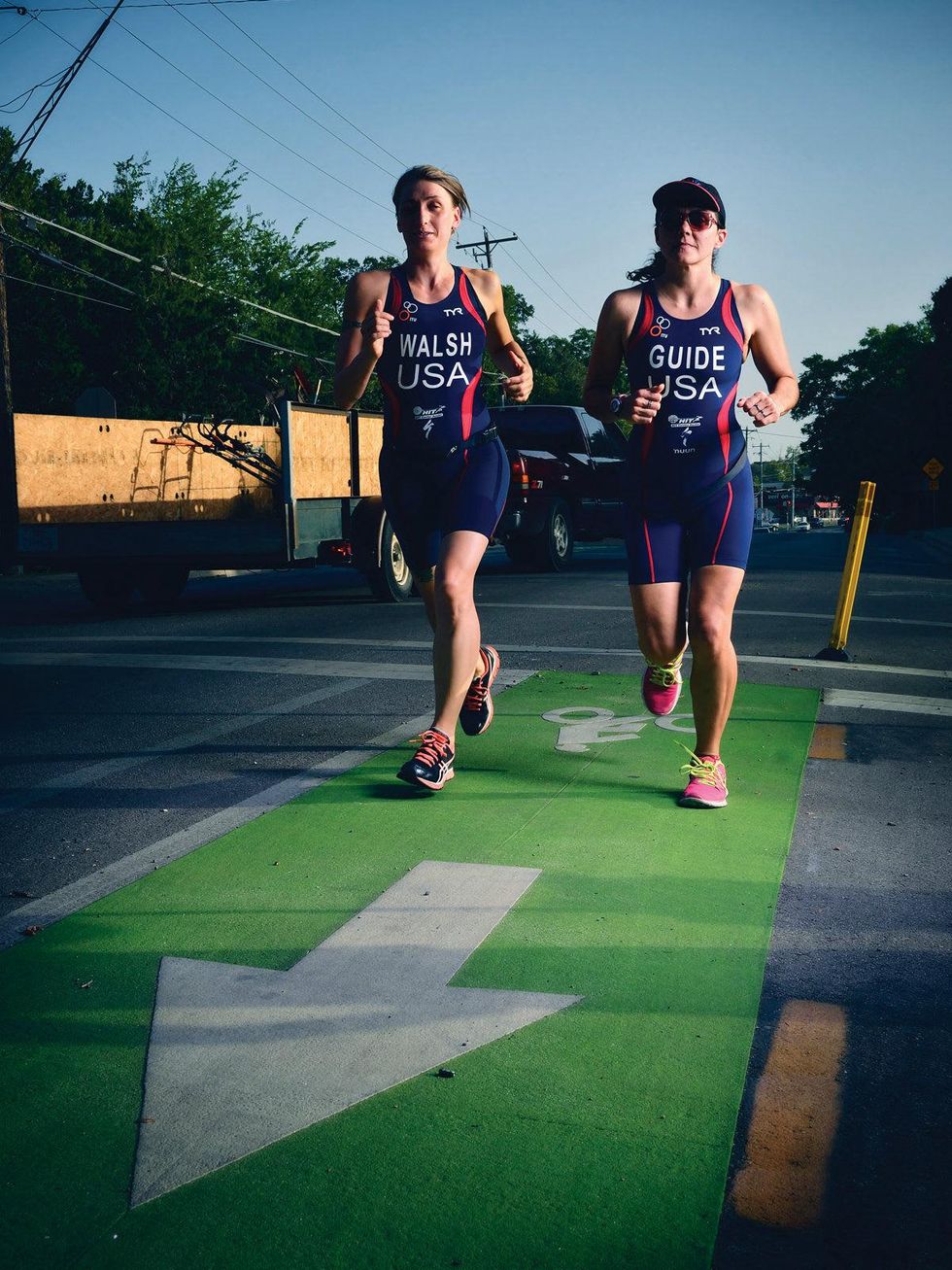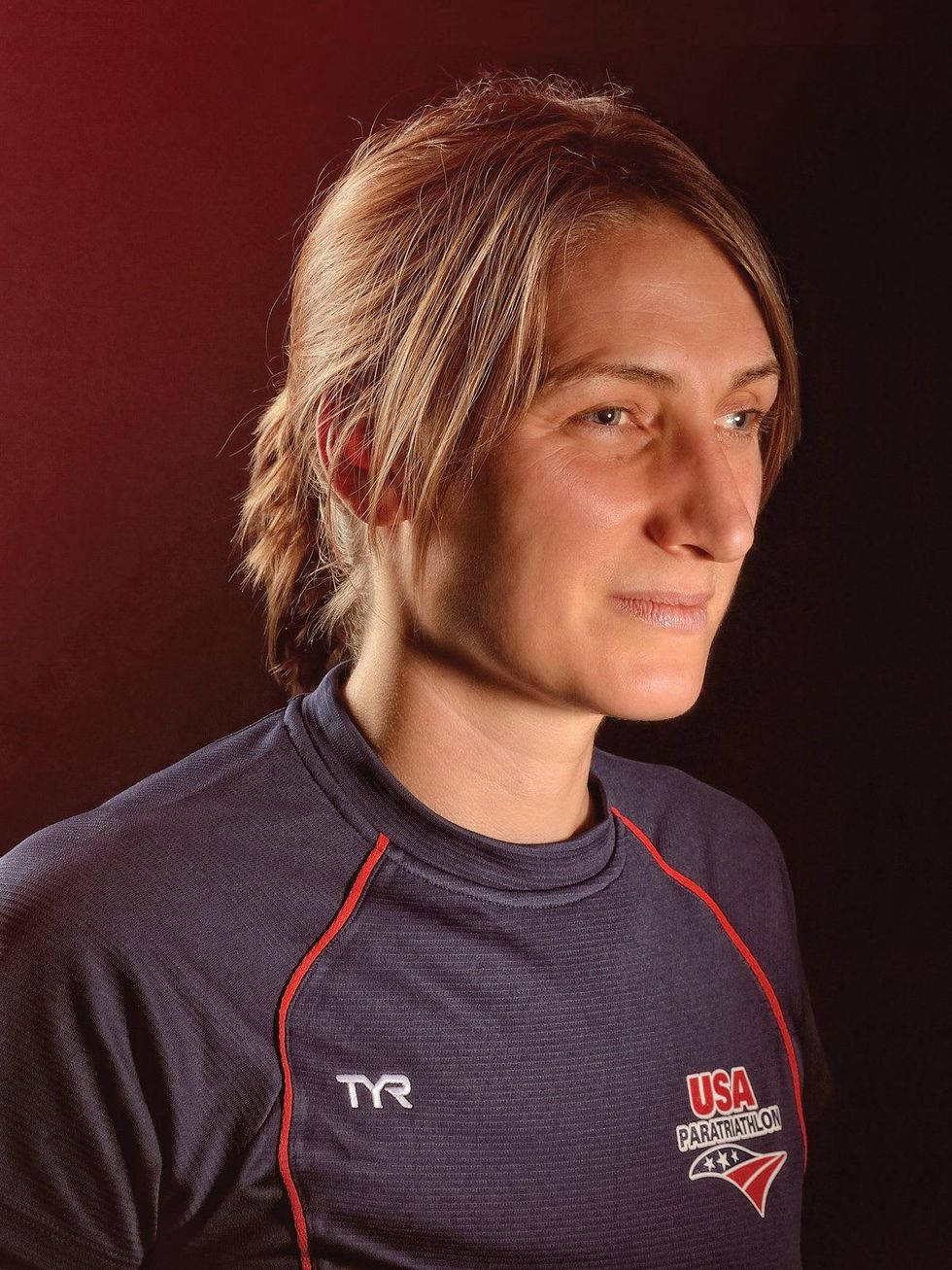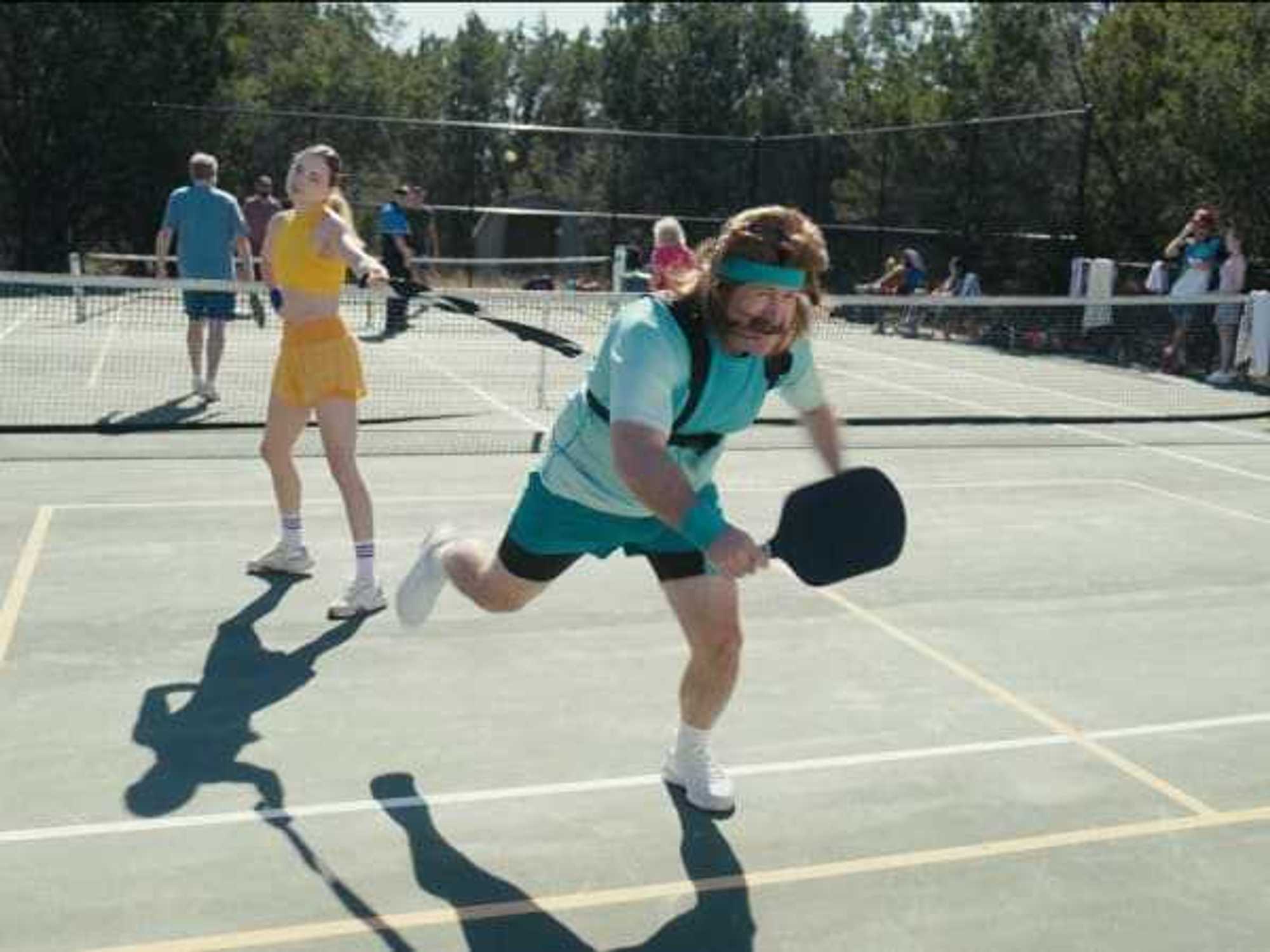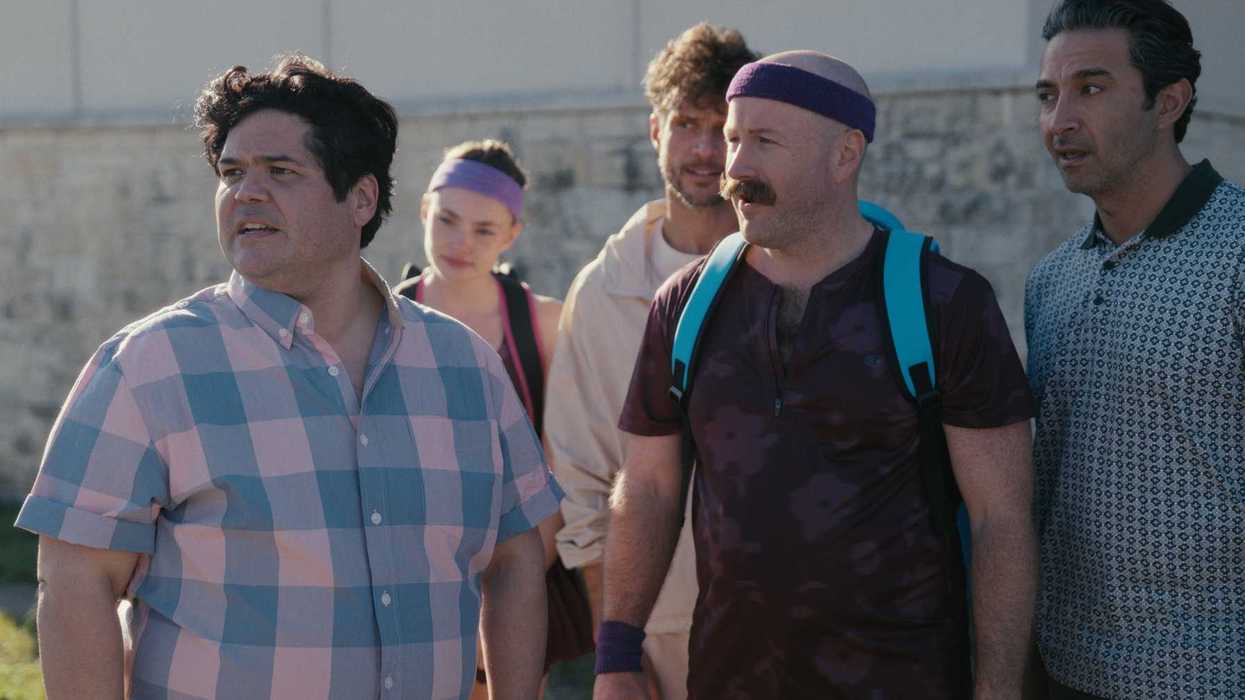Fastest Female Blind Triathlete in U.S.
Austin triathlete continues to triumph despite blindness

Editor's note: Each month, CultureMap features an exclusive story from Austin Fit Magazine. This month, the magazine introduces you to five disabled athletes who have overcome physical challenges to become triathletes, distance runners and technical climbers. In the following excerpt, we meet Patricia Walsh, a triathlete who lost her sight at age 5.
You’re an athlete. You love your sport. The people who encourage you and keep you going mean the world to you. Competing with other athletes or with your own record fuels your passion.
Testing your limits and finding out what you’re made of drive your life. Sometimes you struggle to fit the training and the races, games, or other events into your work and family life, but you solve problems as they come along because you can’t imagine giving up your sport.
Patricia Walsh is the fastest blind female triathlete in America — and perhaps in the world.
Would these statements still ring true for you if you lost your leg, your sight, or the use of your arm? Would they apply if you had been born into this kind of body? According to athletes with physical challenges (and with close ties to Texas), the passion for their sport burns just as bright.
Their supporters nestle in their hearts just as strongly. Competition urges them onward just as much. Challenging their alleged limits and staying true to themselves assumes an even greater role in their lives.
For sure, the struggle to fit everything in becomes a major issue, but they solve problems, no matter how difficult, because they can’t imagine giving up their sport.
Patricia Walsh, 32, Triathlete
Patricia Walsh lost most of her vision at age 5 after surgery for a brain tumor. All but a six-degree field of vision was gone by her mid-teens.
Multiple tests show that she is eligible to race in the International Triathlon Union (ITU) TRI6a category for the blind, despite several attempts to disqualify her and move her to a category for those with more sight. The TRI6b category is for those who are legally blind but still have up to a 40-degree field of vision.
Walsh, an engaging and warm-hearted electrical and computer engineer who recently moved to Austin from the Seattle area, continues to do most of her training on a bike trainer, in a pool, and on a treadmill so that she doesn’t have to “find a guide every single day.” For races, however, she must rely on a guide of the same sex and the same pace.
During the swim and the run, a tether around her waist and the guide’s waist keeps her on course. A titanium tandem bicycle with the guide riding up front makes the bike course possible for her. (As anyone who has ever ridden a tandem knows, the person pedaling in back has to work just as hard as — or harder than — the one in front.)
Stopping the bike and taking corners require more time than the same maneuvers on a single bike, so riding a tandem provides no advantage for Walsh. In fact, some might say there’s a disadvantage to riding a tandem; “divorce-cycle” is the common nickname among couples who use a tandem because riders who don’t communicate well on the bike encounter problems.
To show what a gifted athlete Walsh is, let’s look at her race times:
- At the 2013 Capital of Texas Paratriathlon on May 27, Walsh’s finishing time in the sprint distance was 1:18:12.13, earning first place in the TRI6a category, whereas the women’s 30-34 age group sprint winner finished in 1:18:26.74.
- At the Aquaphor New York City Triathlon on July 14, she won a prize of $1,500 for her first place time of 2:29:15 in the Olympic distance TRI6a category. The first- and second-place women’s 30-34 age groupers posted 2:09:01 and 2:26:25, respectively, symbolically giving Walsh third place.
Walsh is the fastest blind female triathlete in America — and perhaps in the world. Though Walsh loves the Ironman distance and has raced several, she plans to continue to focus on shorter distances for now because the opportunities for international racing are more numerous.
The main challenges Walsh faces as a blind triathlete are her dependence on a guide and her time-crunch issues. Because she generally uses a different guide for each race and meets the person only an hour or so before start time, she has found that communicating clearly is of utmost importance.
An independent person, Walsh handles her transitions (between swim and bike, and between bike and run) without help and lets her guide know exactly what she needs and doesn’t need. Her “all-time favorite guide” is Austin’s own Angie Ballantine, who works full time at Jack & Adam’s Bicycles.
Because Ballantine and her husband have a 6-year-old daughter, she can’t guide Walsh very often, but the two made the trip to the ITU World Championships in Auckland, New Zealand, in 2012, where Walsh earned a bronze medal. Ballantine called Walsh an “amazing athlete” and said that she thinks of her as a sister, a sentiment Walsh echoed.
Walsh, who has a full-time job, also has her own side business, Blind Ambition Speaking, through which she books motivational speeches all over the U.S. With a day job, a side business and her racing career, many of her time-crunch challenges center around transportation issues.
But Walsh is a skilled problem solver, and she arrives where she needs to be on time, with very little help, and with all the necessary paraphernalia — and triathlon is a sport with much paraphernalia. She’ll be utilizing this skill set when she takes her gear oversees, as Walsh is competing at the ITU Grand Final Championships in London on September 15 and will probably go to Rio de Janeiro in 2016 for the Paralympics. (The ITU is still working on the start list.)
---
To read the full story and learn more about other triumphant Austin athletes with disabilities, pick up the September issue of Austin Fit Magazine.



 Harvey Guillén, Kristine Froseth, Jared Bonner, Ryan Cooper, and Pej Vahdat are just some of the cast in Pickleheads. Photo courtesy of Pickleheads
Harvey Guillén, Kristine Froseth, Jared Bonner, Ryan Cooper, and Pej Vahdat are just some of the cast in Pickleheads. Photo courtesy of Pickleheads